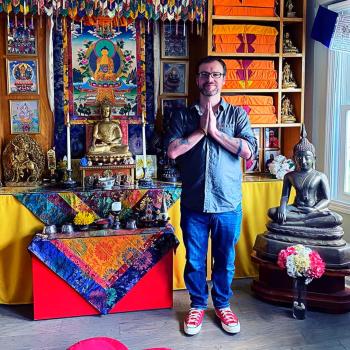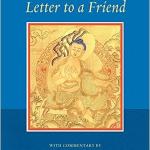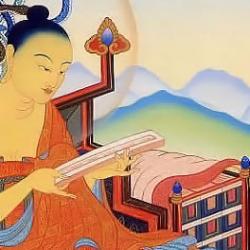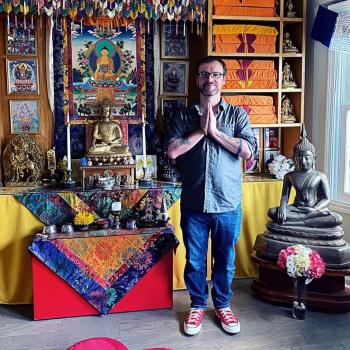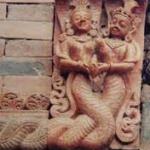Rebirth.
This is a concept a lot of us struggle with sometimes as western Buddhists.
The traditional teachings in Buddhism is that when you die some part of you is reborn based on your actions in this life. If you do good things that generate merit, you’re likely to be reborn in better circumstances. And if you do a lot of really bad things, you’ll be reborn somewhere less pleasant. Not only that, but also you’ve had many many lives before this one and you will probably have many more after.
In Tibetan Buddhism there’s this expression. “Everyone you meet has been your mother.” That’s what they believe. We’ve all been born so many times that at some point your friend was your enemy and your enemy was your friend. First will later be last. Times they are a’changing. And there’s an implication that’s intended with that kind of belief and it’s this: if everyone has been your mother, or someone else you love and cherish, then we won’t want to harm anyone. They’re all family. Even when they harm us, we won’t want to harm them or least we’ll think twice about it. That’s the idea. It’s purpose is to make us love each other. Or it can serve that purpose, anyway.
Rebirth was an idea the Buddha believed in and accepted. There can be little doubt about that. It’s part of the teaching. We’ve been born into human life because we have good karma from the past.
But at the same time Buddhism teaches there is no self and no eternal soul. What we think of as our selves is nothing more than a collection of separate parts coming together in the right circumstances. And everything ends eventually, there’s nothing eternal about this.
So, what moves on from life to life?
Some aspect of our being, but it’s not who we are.
This is one of the oldest Buddhist ideas, but still such a hard thing to wrap our heads around. Here in the west millions of people believe in various magical things but to some rebirth seems like a bridge too far. We sometimes get this idea in our heads that Buddhism must be secular, or that it’s not really a religion, or at least that it’s not like those other religions. It’s above them somehow.
In his book ‘Buddhism Without Beliefs’ Stephen Batchelor says, “Although he taught dharma practice to be meaningful whether or not we believe in rebirth, and speculation about future and past lives to be just another distraction. The evidence does not suggest that he held an agnostic view on the matter.”
The Buddha, it would seem, did believe in rebirth. Batchelor tries to make the case that the Buddha believed that because it was part of the culture he was raised in, that rebirth isn’t fundamentally part of Buddhism but just part of the culture in India at that time.
Do we have to believe in rebirth?
In some sects of Buddhism they talk about rebirth a lot and in some they talk about it very little. A person could certainly choose a Zen style over a Tibetan one because Zen Buddhists talk about rebirth a lot less.
Can we think of rebirth as a useful metaphor?
Can we jettison it as part of an unscientific worldview, as Batchelor suggests?
And should we?

